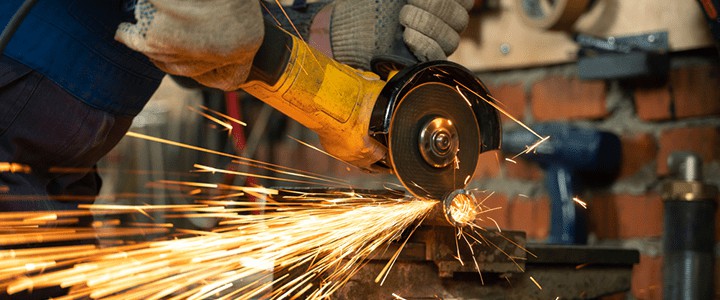Navigating the World of Abrasive Wheels: Types, Uses, and Safety Protocols in Ireland
Abrasive wheels are indispensable tools across various industries, including construction, automotive, and manufacturing. Understanding the types of abrasive wheels available, their applications, and associated risks can effectively enhance workplace safety. In this guide, we will delve into the different types of abrasive wheels, their specific uses, and the critical importance of proper training in ensuring compliance with safety regulations in Dublin, Cork, Galway, Limerick, Waterford, and beyond.
Understanding the Types of Abrasive Wheels
There are several primary categories of abrasive wheels, each designed for unique tasks:
- Grinding Wheels: Primarily used for grinding metals and other materials. These wheels are available in various shapes, including flat, cup, and cylindrical.
- Cutting Wheels: Ideal for slicing through metal and other hard materials with precision. They come in different thicknesses and are essential in construction and metalworking.
- Polishing Wheels: Used for finishing surfaces to achieve a smooth and shiny appearance. These wheels can be made from various materials, including felt and cotton, and are often used in jewelry and automotive industries.
- Sanding Wheels: Designed for removing material from a surface, these wheels are often utilized in woodworking and metalworking applications.
Abrasive Wheels Applications in Various Industries
Understanding where and how to use abrasive wheels is crucial for safety and efficiency. Below are examples of industry applications:
- Construction: Cutting and grinding wheels are integral for masonry and metal fabrication, ensuring precise cuts for building materials.
- Automotive: Polishing wheels are essential for achieving a perfect finish on automotive parts, while cutting wheels help create components from metals.
- Manufacturing: In manufacturing environments, abrasive wheels are often used for batch production processes requiring precise grinding and cutting.
Specific Risks Associated with Abrasive Wheels
While abrasive wheels are incredibly useful, they also pose significant risks, including:
- Wheel Breakage: Improperly mounted or defective wheels can shatter during operation, causing flying debris and injuries.
- Overheating: Excessive friction can lead to overheating, which may compromise the integrity of the wheel and create fire hazards.
- Inadequate Shielding: Not using appropriate personal protective equipment (PPE) can result in injuries from sparks or particles.
The Importance of Proper Training and Certification
Training is essential to safely handle abrasive wheels and reduce accident risks. Here's how proper training contributes to workplace safety:
- Knowledge of Best Practices: Comprehensive training programs, such as the Abrasive Wheels Course in Dublin, teach operators safe mounting, handling, and operating techniques.
- Understanding Risks: Certified training courses emphasize the potential hazards associated with each wheel type and provide strategies for risk mitigation.
- Legal Compliance: Keeping up with regulations in Ireland, like those established by the Health and Safety Authority (HSA), ensures your workplace meets safety standards, which is crucial for avoiding penalties.
- Skill Enhancement: Regular training upgrades an employee’s skills, enabling them to operate equipment competently and confidently.
Finding the Right Abrasive Wheels Training Programs
If you're in Dublin, Cork, Galway, Limerick, or Waterford, investing in an Abrasive Wheels Certification in Ireland is a proactive step towards ensuring workplace safety.
- Consider enrolling in the Abrasive Wheels Course in Cork or the Abrasive Wheels Safety Course in Limerick for hands-on training and certification.
- Explore Abrasive Wheels Online Courses, which provide flexible training options tailored to your schedule.
Conclusion: Taking Steps Towards Safety
Understanding the different types of abrasive wheels, their applications, and the associated risks is vital for promoting safety in the workplace. By prioritizing training and certification, you can ensure compliance with safety regulations in Dublin, Cork, Galway, Limerick, Waterford, and other major cities across Ireland.
For more information about enrolling in a certified abrasive wheels training program, contact us at [email protected].



 349,500 Offered Certificates
349,500 Offered Certificates
 24/7 Online Training
24/7 Online Training
 Money Back Guarantee
Money Back Guarantee
 Fully Accredited Courses
Fully Accredited Courses
